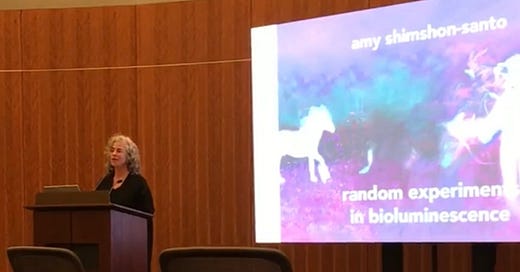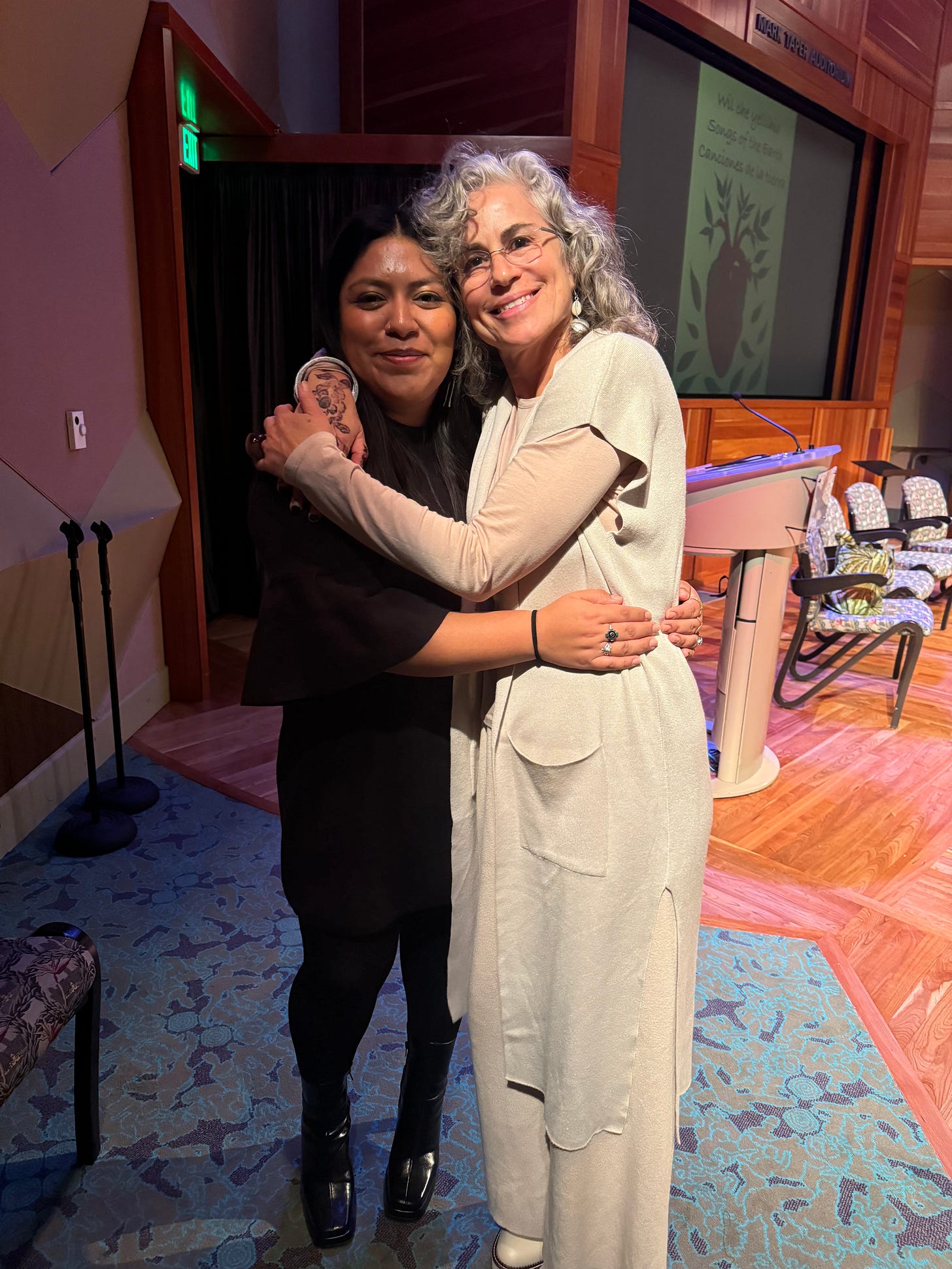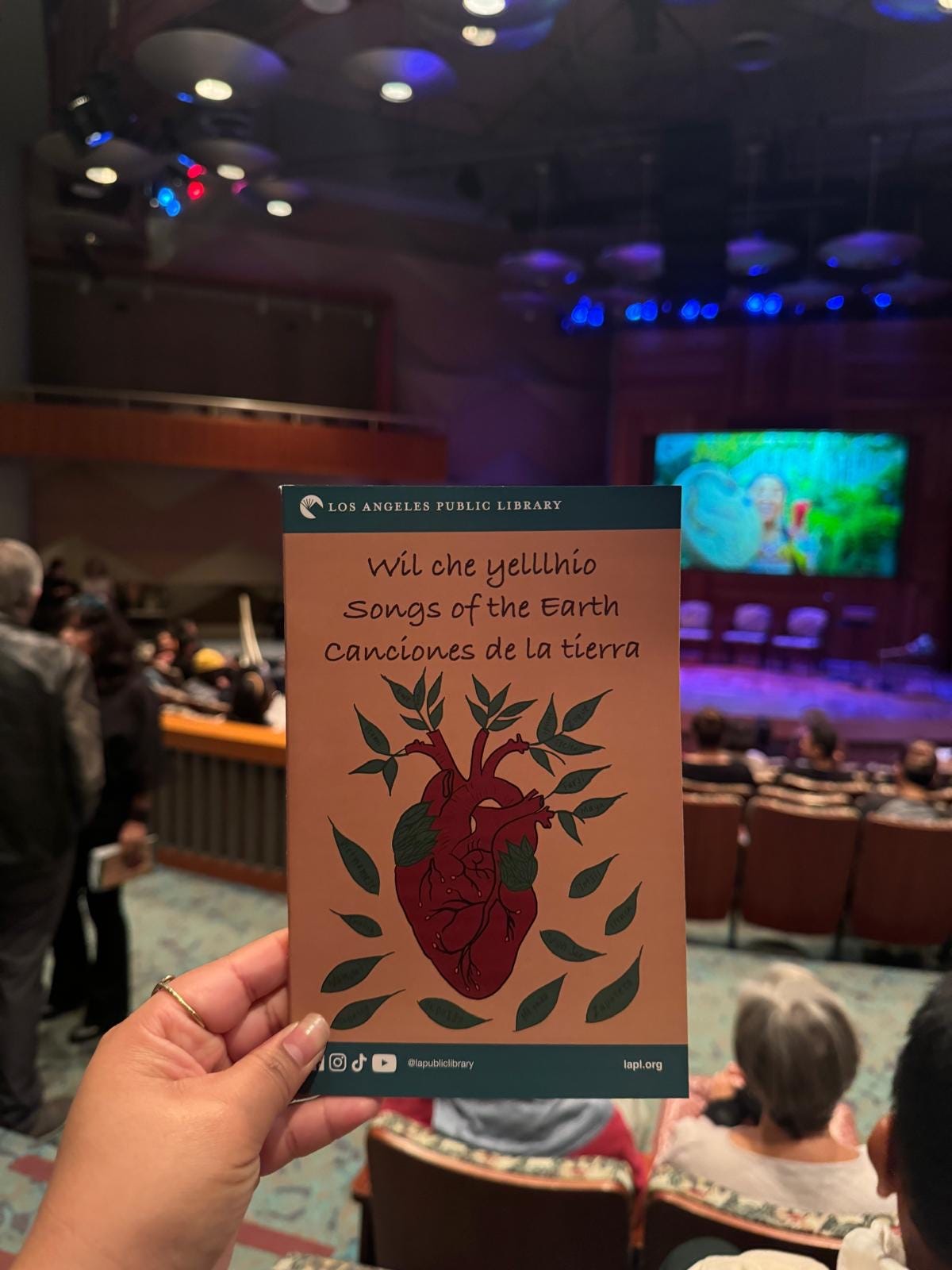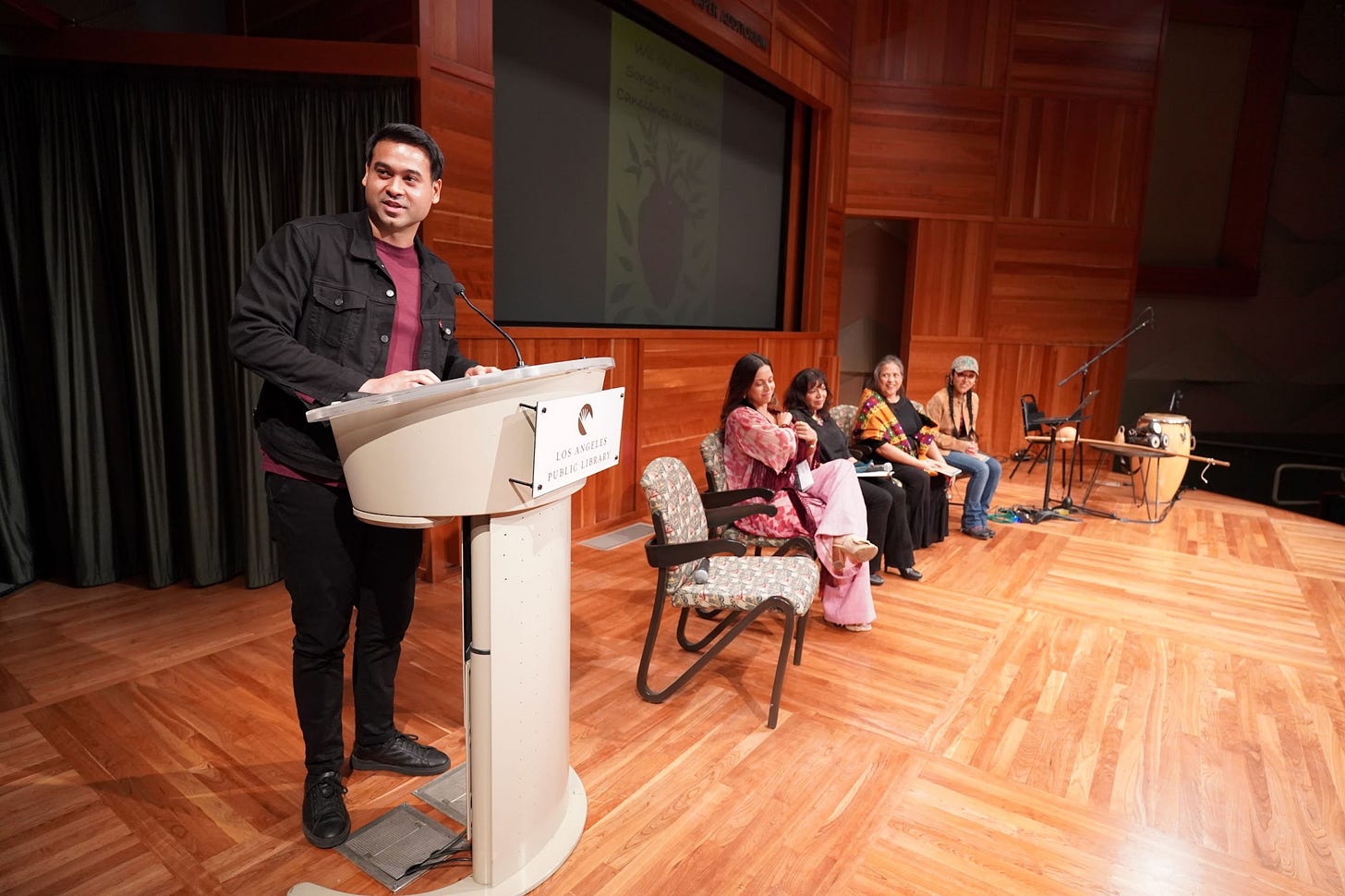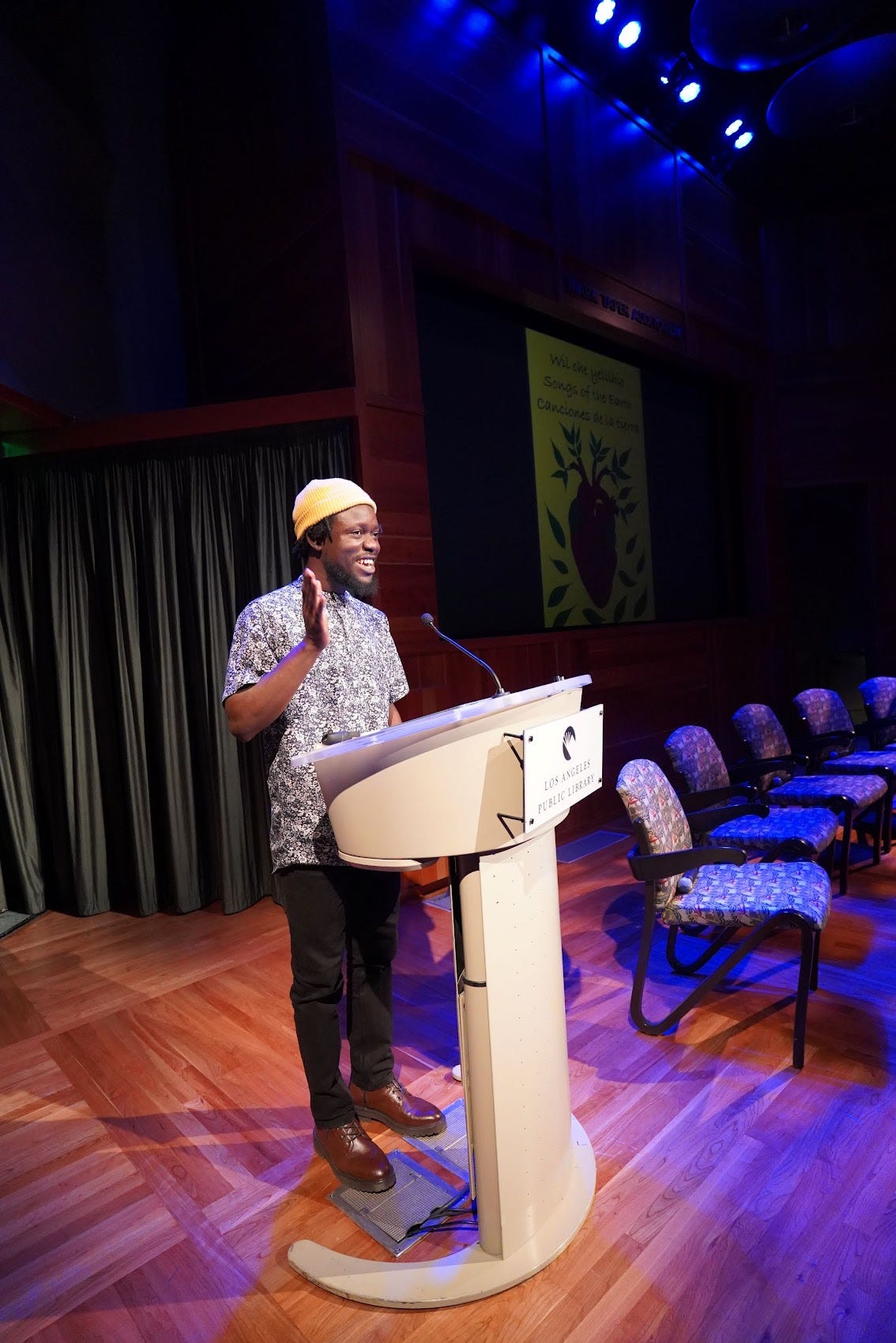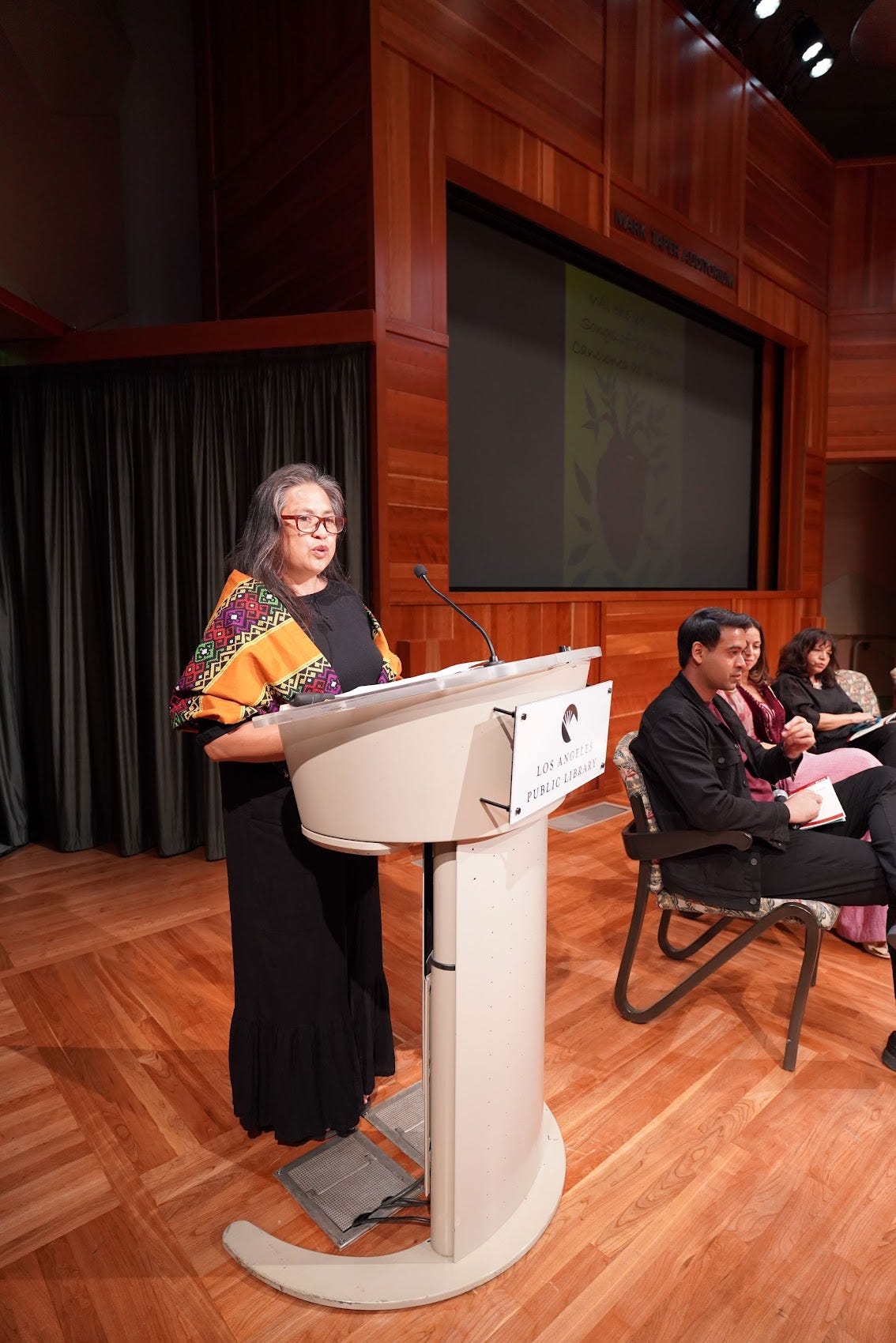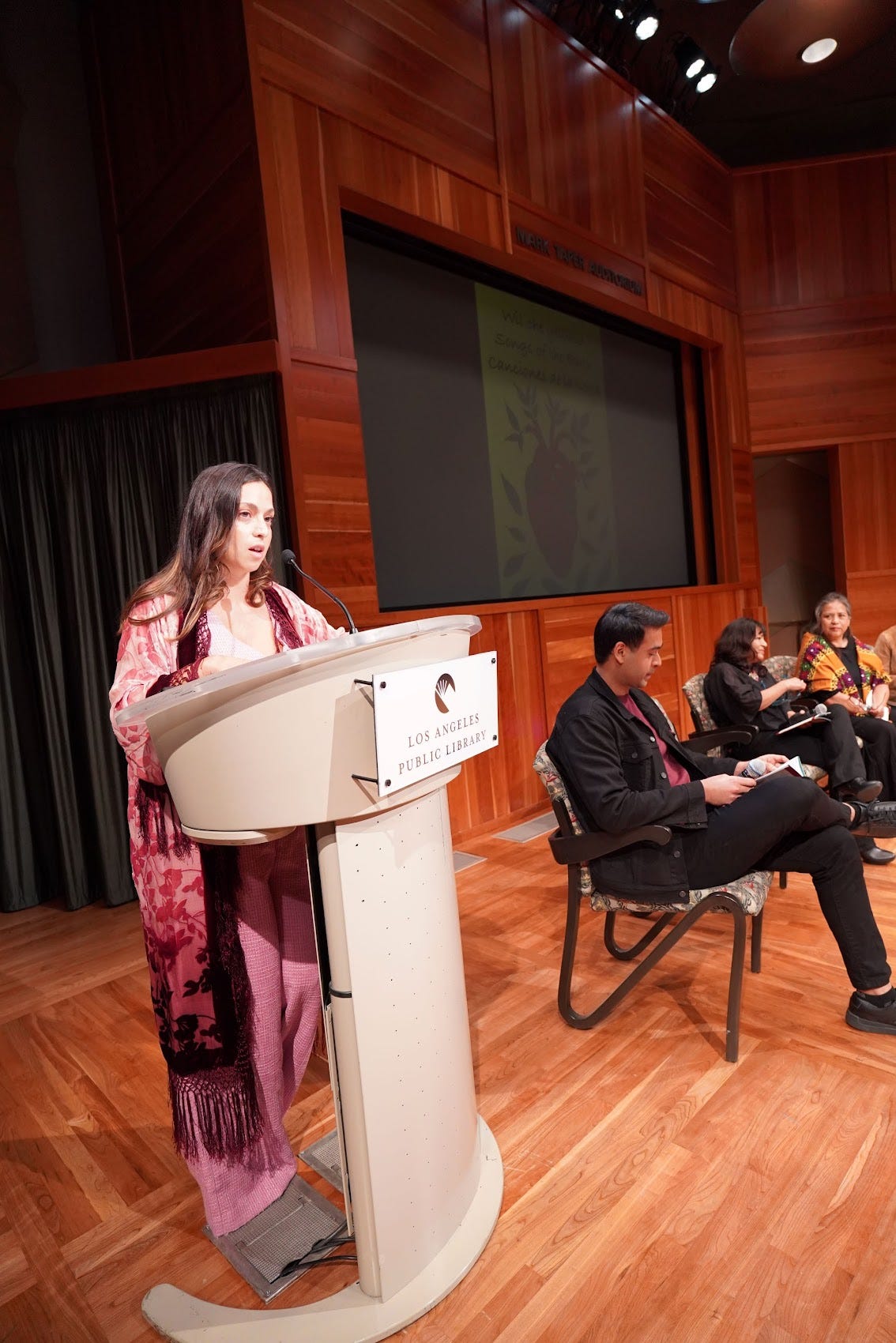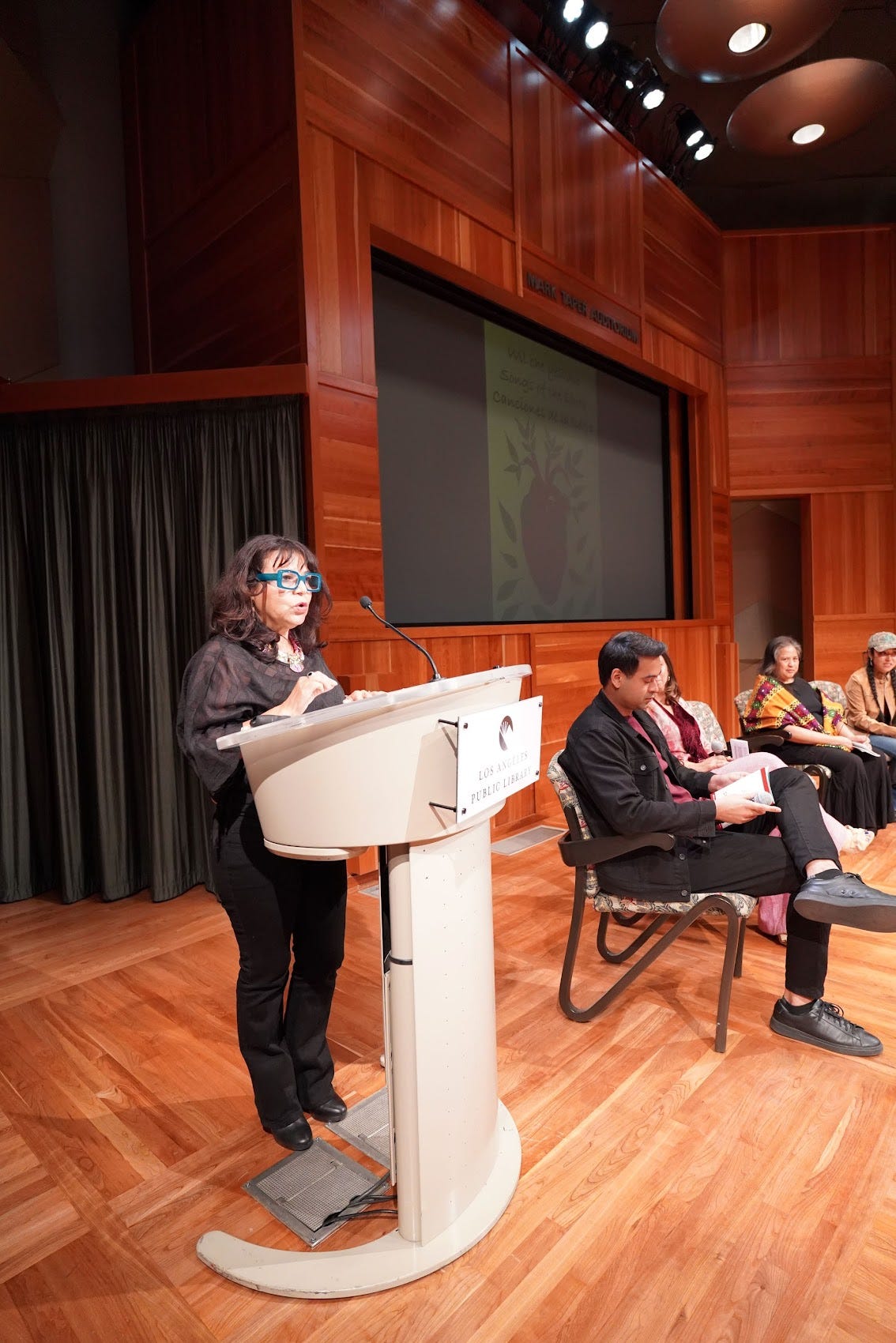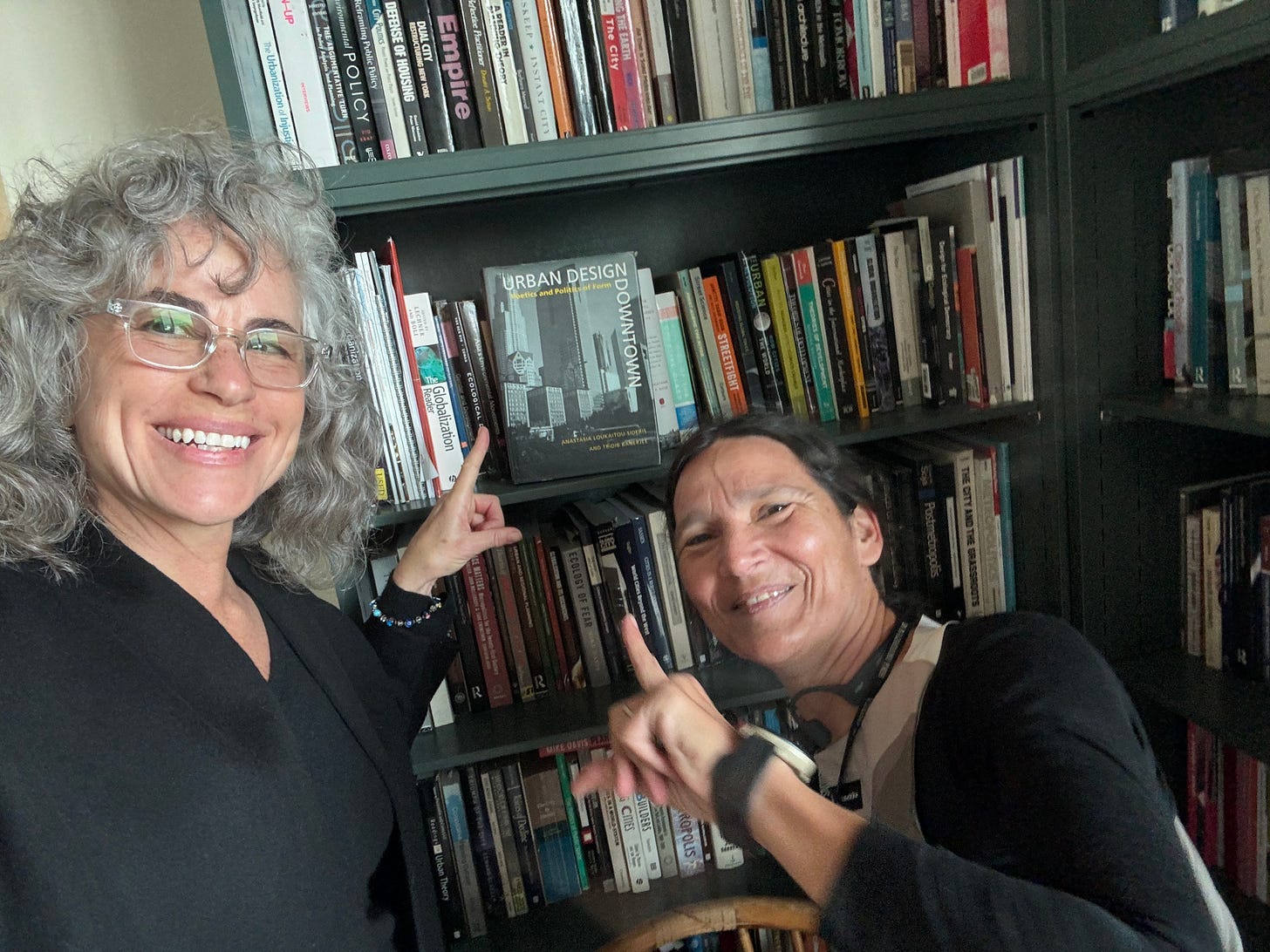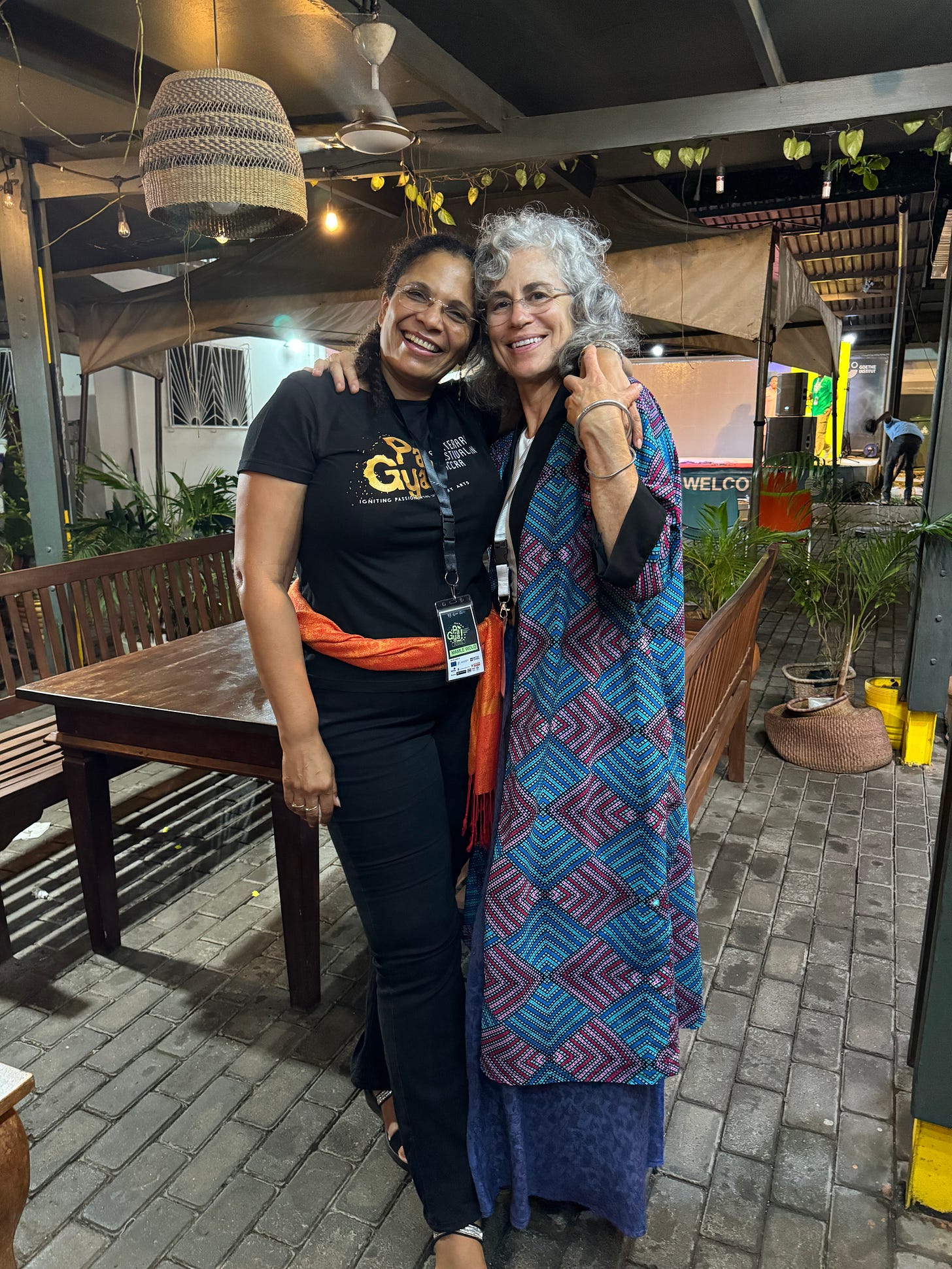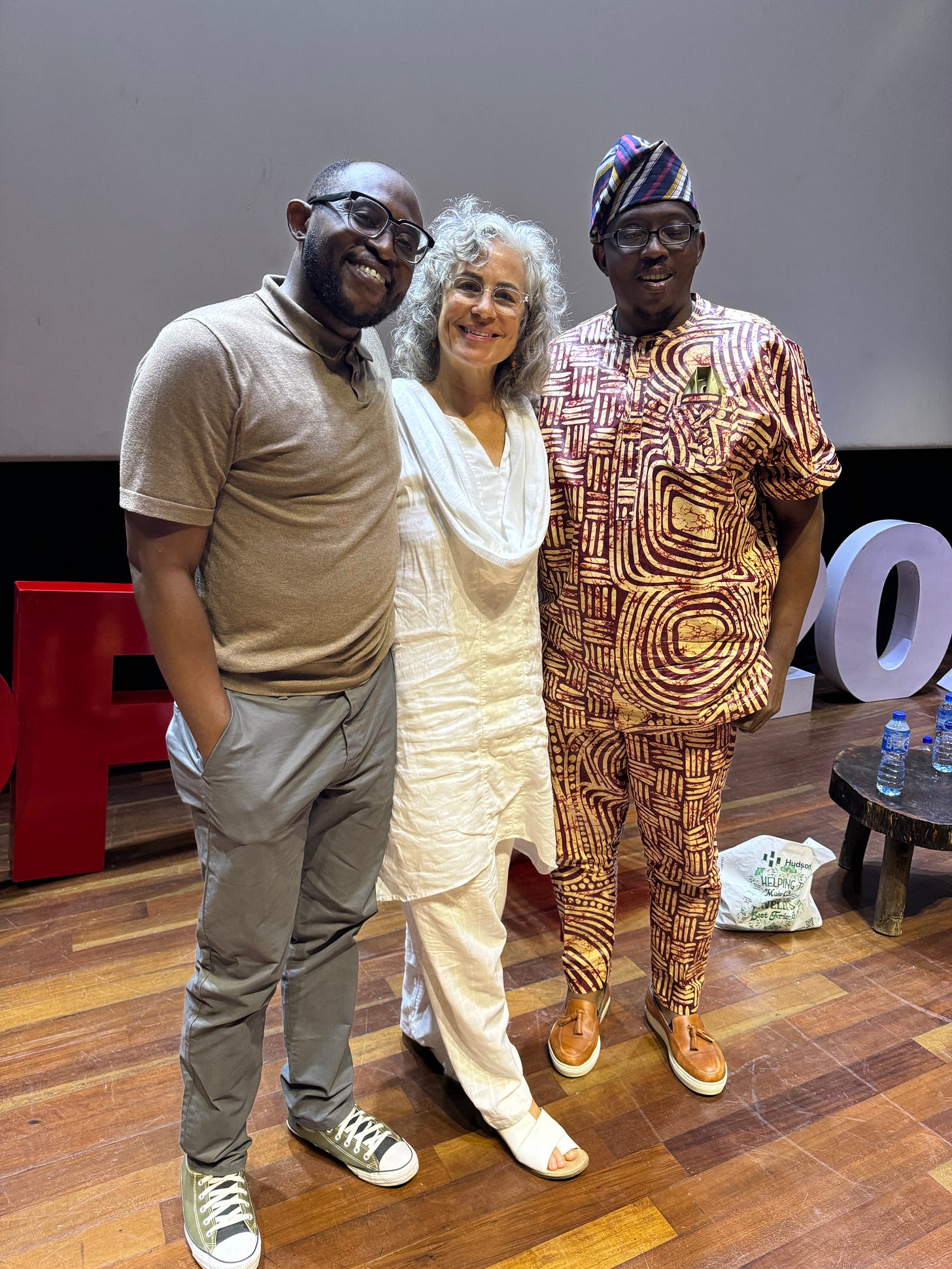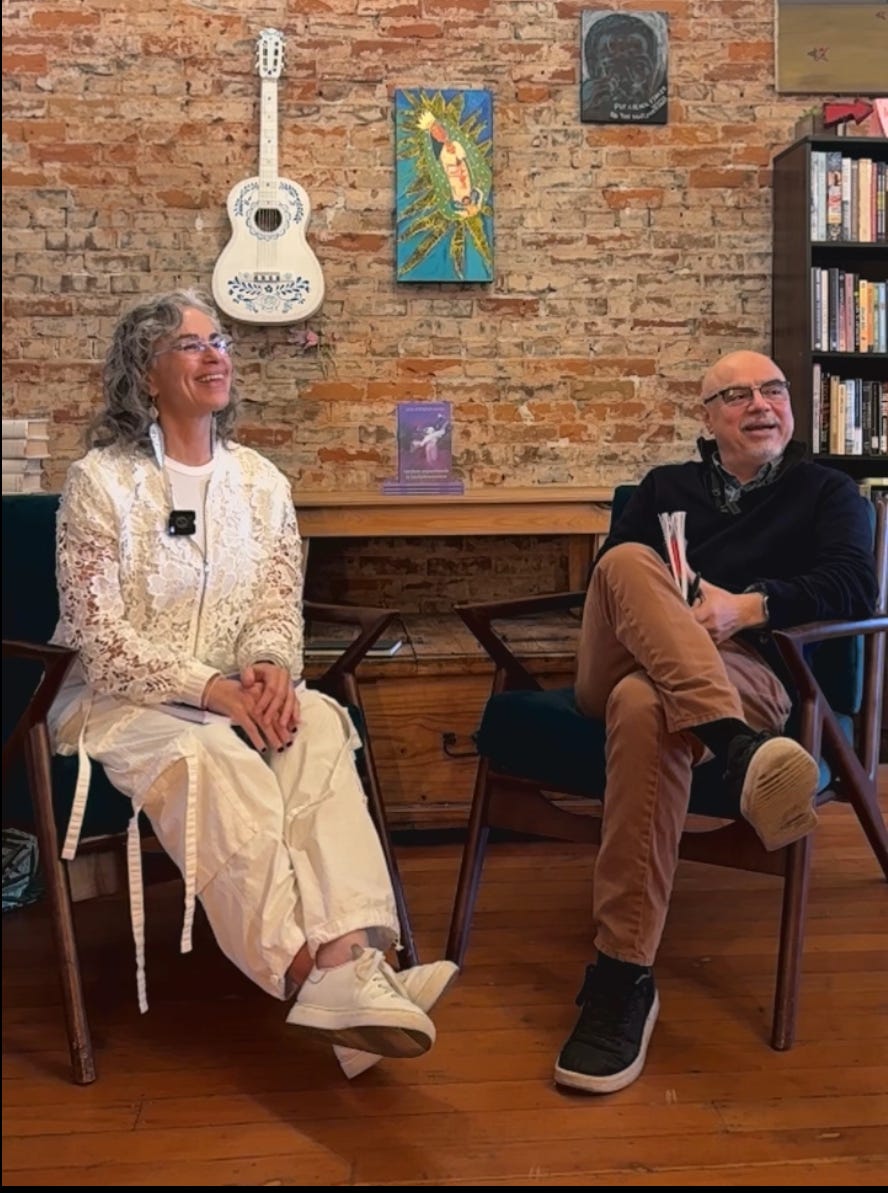Wil Che Yelllhio / Songs of the Earth
Dear Ones,
Hello out there in Substackland! I hope that you are caring for yourself and loved ones with grace during these fraught times. May you find rejuvenating moments of creation, learning, and communion every single day. As the Gregorian calendar comes to a close, I’ll be sharing highlights from life-giving community work, and including updates about the new book Random Experiments in Bioluminescence. Before we turn the corner on 2024, I will also offer a generative writing experience for subscribers as my way of saying thanks.
This fall, I visited friends in Ghana and Nigeria for the Pa Gya! Literary Festival in Accra and the Lagos International Poetry Festival in Nigeria. I also completed projects with the LA Public Library and a pilot with the Braille Institute Library. We performed, held readings and listenings, fostered fresh conversations, taught creative writing, and published plurilingual, inter-generational stories to connect the human family.
This post will focus on a wonderful LAPL project called Wil Che Yelllhio / Songs of the Earth / Canciones de la Tierra.
Wil Che Yelllhio / Songs of the Earth / Canciones de la Tierra
Angelenos come home to over 200 languages, yet we rarely hear them in school or at work. These are the languages of home. So, we set out to create an inclusive program that would bring Angelenos “home” to each other. The project ended up connecting local and global writers from across the Americas, Africa, and the Pacific Islands.
Yvette Cabrera and I at the book launch for Wil Che Yelllhio / Songs of the Earth / Canciones de la Tierra.
This summer and fall, I helped launched a new project with the LA Public Library to amplify and create community around indigenous languages. It was an honor to work closely with librarians Yvette Cabrera and Vi Thục Hà, with the blessing of City Librarian John Szabo, to bring this idea to life.
Yvette Cabrera holds up a print copy of the chapbook that was distributed to everyone who attended the launch.
Web Resources For All
I hope that you check out the project landing page that has myriad public assets. The site includes:
—A downloadable pdf of the plurilingual chapbook I co-edited and introduced with Yvette Cabrera. The chapbook includes plurilingual writing in 20 languages including: Yoruba, Mè'phàà, Tu'un Sari , Tsotsil, Diné Bizaad, Maya, Nahuatl, Nahuat, Zoque, Ewe, Hindi, Farsi, Vietnamese, Twi, Tagalog, Hawaiian, Hñähñu, English, Spanish, and French.
—Statements from indigenous planner Michaela Paulette Shirley, and poet Akpa Arinzechekwu.
—11 author videos reciting their work:
Ana Margarita González Arrocha “La Malinche.” [Maya / Yucatan, Mexico]
Beah Batakou. [Twi & English / Accra, Ghana]
Ana Chino Miguel. [Zapoteco / Oaxaca, Mexico]
Abosede Ogundare. [Yoruba & English / Nigeria]
Karanbir Singh. [Hindi / India & Los Angeles]
Lillian Farzan-Kashani, translation by Sohelia Maghen & Nosrat Khajavi. [Farsi & English / Los Angeles]
Manuel Bolom Pale. [Tzotzil / Chiapas, Mexico]
Margarita León. [Otomí- Hñähñu / Valle del Mezquital, Hidalgo, México]
Nana Técla. [Ewe / Togo, West Africa]
Adriana López. [Maya Tseltal / Chiapas, Mexico]
Fermin Procopio Tlacotempa. [Náhuatl / Guerrero, Mexico]
The chapbook launch was held in the beautiful Mark Taper Auditorium at LA’s Central Library. The gathering included live readings by local authors, recorded performances by global writers, live music played on ancient instruments by Avila Santo, and more. We concluded with a delicious community conversation about language vitality, diversity, and belonging. Here are event photos!
Teaching With Wil Che Yelllhio
The Wil Che Yelllhio / Songs of the Earth / Canciones de la Tierra chapbook and web assets are great for teaching and learning. The inclusive nature of the work ignites wonder and respect for mother tongues and multiple cultures on our planet.
In my case, poetic themes in the chapbook are ripe for reflection and responsive creative writing. For example, Manuel Pale Bolom’s poem “JK’AN KO’NTON / YO SUEÑO” (in Tsotsil and Spanish), and Abusede Ogundare’s poem “IBÙGBÉ/ SHELTER” (in Yoruba and English) both write about mother tongue as seeds planted within us. A small seed holds all of the information needed to expand and grow.
I guided a writing workshop with undergraduates at Soka University on “seeds of language” using the online LAPL materials. To start, we read Bolom and Ogundare’s poems aloud, listened to their videos, and discussed our own relationships to writing and the idea of languages as seeds.
With environmental planner Deike Peters at SOKA University.
The prompt: “what seeds are firmly planted inside of you?” — with the caveat that this could relate to caring for a mother tongue or a personal value — became the inclusive jumping off place. Everyone in the class came up with their own unique take on the topic.
In one case, a student who had been raised in Tibetan, but had no one to converse with in the language at school, wrote about a lesson she learned from her father. She then decided to keep a journal in her mother tongue to feel closer to him. Another student wrote about personal values for self leadership as he guides himself forward.
We were not at all alone in this effort. Check out UNESCO’s mandate for the decade of indigenous languages.
Gift Random Experiments in Bioluminescence
My new book of poetry Random Experiments in Bioluminescence is finally out in print and audiobook. I now have hard copies in my hands I can sign and send to you. Email me at shimshona4@gmail.com to request a personalized copy for yourself or a friend.
The book debuted at the Pa Gya Lit Fest in Accra, Ghana and the Lagos International Poetry Festival in Nigeria . We held panel discussions on geostorytelling, and discussed how poetry could bring new language to climate science, and shared a lot of poetry! More about this in the weeks ahead. For now, here is a glimpse of the amazing Mamle Wolo (author of Flying Through Water), and a fun moment with Efe Paul Azino (Founder of LIPFest) and author Deji Toye.
Upon return to LA, I recited “residence / terrestre” at the Mark Taper Auditorium, read from the at Cafe Con Libros in conversation with Héctor Tobar, and performed for the Environmental Studies Program at Soka University thanks to environmental planner Deike Peters.
Random Experiments in Bioluminescence is a way to bring people together, spark awe in ancient languages and respect for life on planet Earth. Check out this fun interview about the book with Luivette Resto for Poetry.LA.
Wishing you all the very best!
Amy

